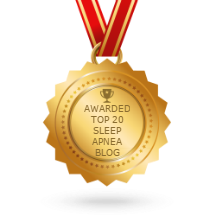Tag Archives: sleep apnea
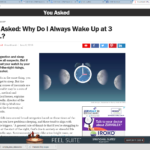
Waking Up From Sleep At 3 A.M.? You’re Not Alone
Age, indigestion and sleep apnea are all suspects. But if you can set your watch by your middle-of-the-night risings, blame alcohol.
It all results in the same thing: you just can’t get to sleep. But the underlying causes of insomnia are multiple, and it may be a mix of biological, medical and psychological issues, explains Michael Perlis, director of the Behavioral Sleep Medicine Program at the University of Pennsylvania.
Insomnia falls into several broad categories based on those times of the night when you have problems sleeping, and these tend to align with predictable triggers. “A general rule of thumb is that if you’re struggling to fall asleep at the start of the night, that’s due to anxiety or stressful life events,” Perlis says. Environmental issues—like a too-bright room, or staring at device screens—can also mess with your ability to fall asleep.
On the other hand, Perlis says depression is linked with “late insomnia”—the kind that wrests you from sleep so late in the night that you’re forced to rise early for the day.
When it comes to “middle insomnia,” which forces your eyes open a few hours after you’ve fallen asleep, Perlis says two common medical conditions are often to blame: gastroesophageal reflux disease, or GERD, and sleep apnea. “In the case of sleep apnea, you wake up because you’ve stopped breathing,” he explains. “With GERD, you wake up because stomach acids are burning your esophagus.”
Even the healthiest sleepers wake a few times during the night, though for the most part you’re not awake long enough to remember them, Perlis says.
To read the rest of this article, click here:
You can buy CPAP Machines, tubing and all of your CPAP supplies at CPAP America, 707 Mantua Pike, West Deptford, NJ 08096. Feel free to contact us at 1-800-569-0167.
You can also reach us via email here.
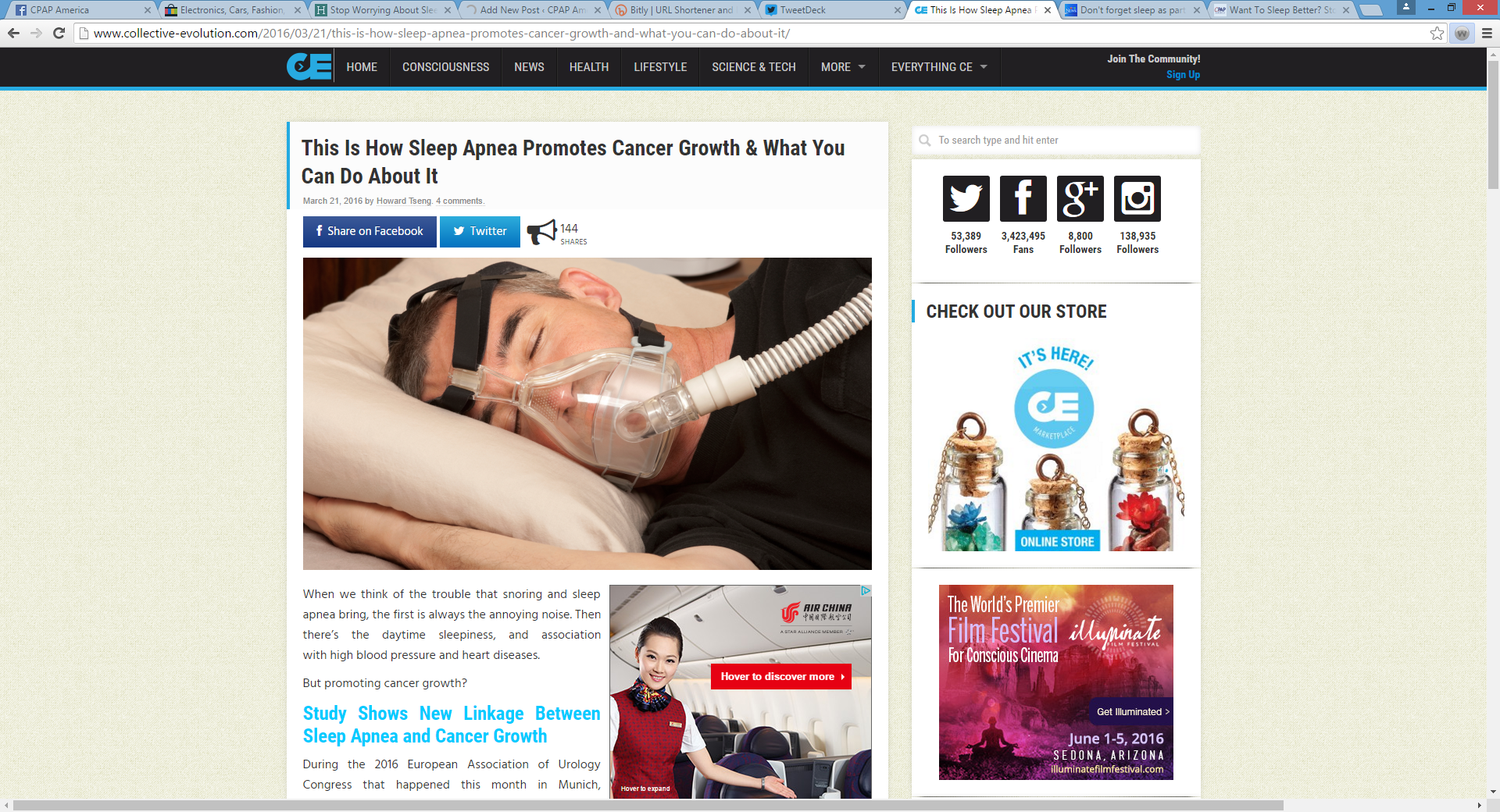
Sleep Apnea Can Promote Cancer Growth?
Study Shows New Linkage Between Sleep Apnea and Cancer Growth
When we think of the trouble that snoring and sleep apnea bring, the first is always the annoying noise. Then there’s the daytime sleepiness, and association with high blood pressure and heart diseases.
But promoting cancer growth?

Was the death of Justice Scalia sleep apnea related?
Was sleep apnea a factor in Justice Scalia’s death?
The days after Supreme Court Justice Antonin Scalia died at a Texas hunting ranch were marred with confusion and speculation. The Presidio County Sheriff’s Office released an incident report late Tuesday night in response to a records request made by The Washington Post.
Here are the most striking details from it:

Sleep apnea may increase risk of kidney disease
Can sleep apnea lead to kidney disease?
Having sleep apnea may increase the risk of chronic kidney disease, according to a report from Taiwan.

Ways you can sleep better during and after menopause
Prioritizing and protecting sleep during menopause
According to a YouGov survey published this week, women are more likely to have trouble sleeping than men (46%, compared to 36% of adult males) – and more likely to suffer in silence too, rather than speak to their doctor about it.
Countless things can cause sleep difficulties. Many of them are external, such as an uncomfortable mattress, noisy environment and even the temperature of the room. However, experts are warning that sometimes medical conditions like sleep apnea (where breathing patterns are interrupted during sleep, causing snoring and pauses in breathing) might be involved too. So it can be important to discuss sleep problems with your GP.
For women, hormones can interfere with sleep patterns too, particularly as a result of fluctuations and changes linked with menopause.
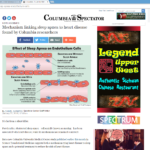
Mechanism could link sleep apnea to heart disease
A mechanism tying heart disease to sleep apnea?
It’s far from a silent killer.
For decades, obstructed sleep apnea—colloquially known as snoring—has been associated with heart disease, while its mechanism has remained a mystery.
But a new Columbia University Medical Center study published earlier this month in Science Translational Medicine suggests both a mechanism tying heart disease to sleep apnea and a potential treatment to reduce the risk of heart disease.
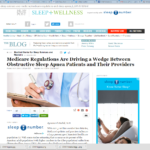
Medicare Policies vs Sleep Apnea Patients, Providers
Medicare Regulations causing a rift between Sleep Apnea patients & providers
With over 52 million enrolled beneficiaries, Medicare’s policies and practices influence a large percentage of America’s healthcare population (1). With some studies estimating that as many as 20 percent of the American adult population (with higher numbers in the older population) suffer from Obstructive Sleep Apnea (OSA), this means that Medicare’s policies affect many with this condition (2). Continue reading
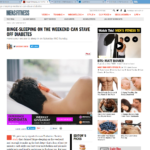
Can Weekend Binge-Sleeping Help Avert Diabetes?
Can you stave off diabetes with sleep?
We previously reported on an Endocrine Society study that claimed binge-sleeping on the weekend isn’t enough to make up for lost sleep—that a loss of just 30 minutes each night can hurt your metabolism and promote weight gain and insulin resistance in the long run. But new research from the University of Chicago says otherwise.
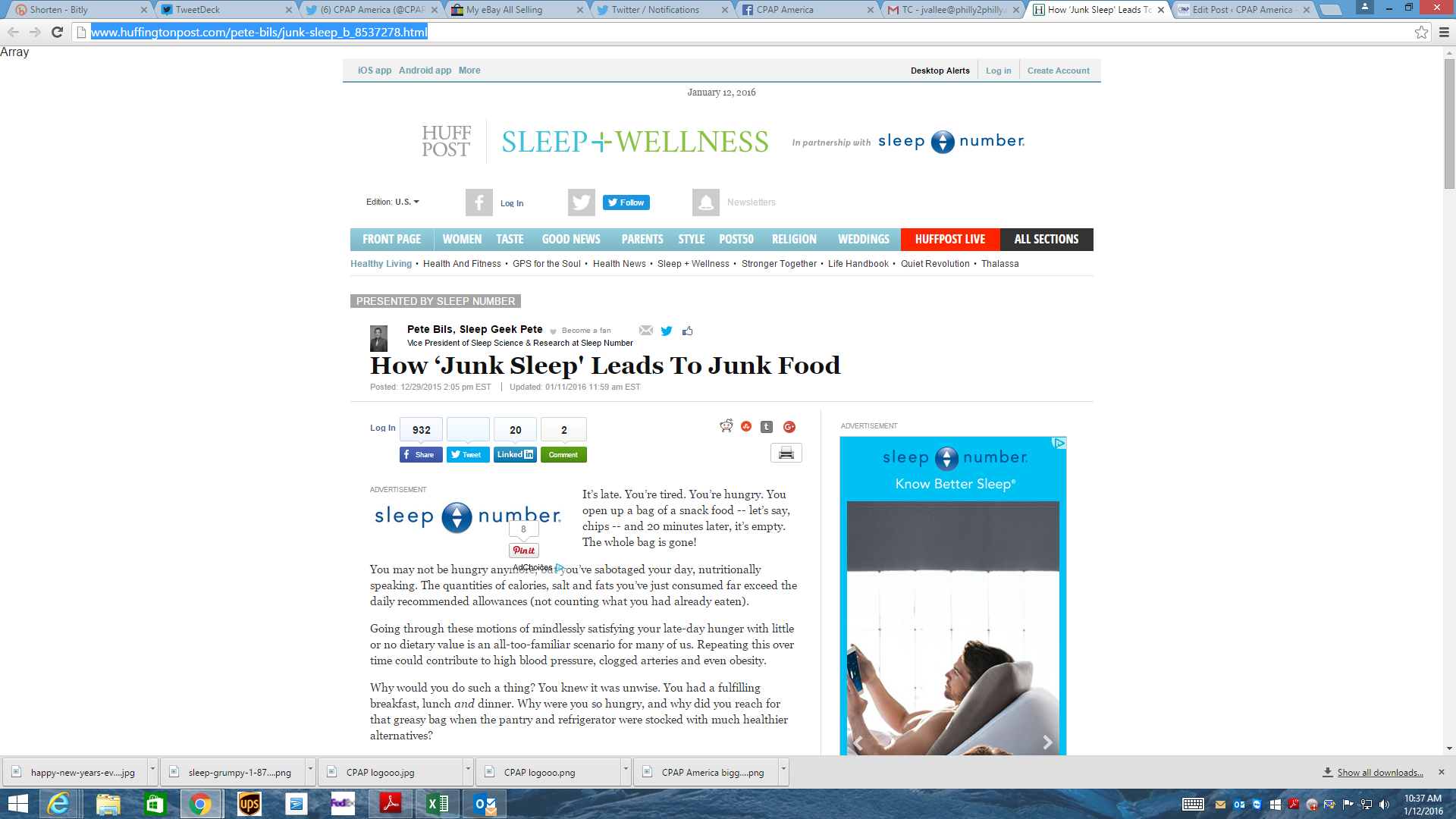
Can ‘Junk Sleep’ Lead To Junk Food?
‘Junk Sleep’ = Junk Food?
It’s late. You’re tired. You’re hungry. You open up a bag of a snack food — let’s say, chips — and 20 minutes later, it’s empty. The whole bag is gone!
You may not be hungry anymore, but you’ve sabotaged your day, nutritionally speaking. The quantities of calories, salt and fats you’ve just consumed far exceed the daily recommended allowances (not counting what you had already eaten).
Going through these motions of mindlessly satisfying your late-day hunger with little or no dietary value is an all-too-familiar scenario for many of us. Repeating this over time could contribute to high blood pressure, clogged arteries and even obesity.
Why would you do such a thing? You knew it was unwise. You had a fulfilling breakfast, lunch and dinner. Why were you so hungry, and why did you reach for that greasy bag when the pantry and refrigerator were stocked with much healthier alternatives?
The answer to all of these questions could be, “junk sleep.”
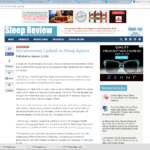
Could Keratoconus be Linked to Sleep Apnea?
What exactly is Keratoconus?
A large new study reveals previously unknown risk factors associated with an eye condition that causes serious progressive nearsightedness at a relatively young age.

